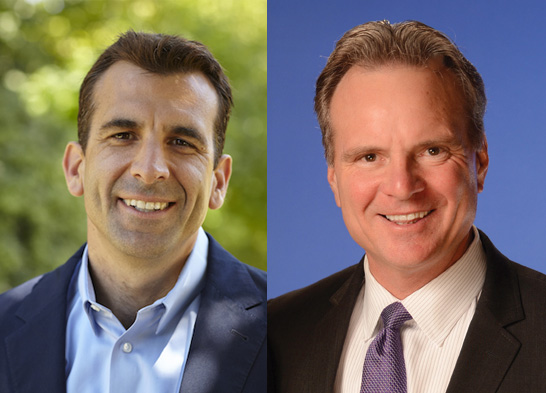Last December, a Santa Clara County judge struck down key elements of the measure, including a provision that would allow the city to impose higher pension contributions for current employees and another that would permit suspension of cost-of-living increases for retirees.
The candidates disagree on what to do next. Liccardo, like Reed, supported an appeal of last December's court ruling and said in a Mercury News op-ed piece earlier last month that "anyone who suggests we should overturn Measure B to improve safety had better identify a way to pay for those retirement costs."
Cortese has called for a settlement of the suits and negotiations to bring pension costs under control.
Cortese and Liccardo are also at odds on the impact Measure B has had on the city's Police Department and on crime.
Cortese argues that Measure B led to an exodus from the department, which has lost hundreds of officers over the last several years, many leaving for jurisdictions with better pay and benefits. That, he says, has led to a spike in violent crime. His remedy: fill 140 unstaffed positions in the Police Department, improve neighborhood policing and gang prevention, and establish collaborative crime-fighting efforts with residents and businesses.
Liccardo says that budget problems caused by rising pensions, not the ballot proposal, led officers to leave the department and that the loss of staff has been minimal since Measure B's passage. He argues that the city has already made progress in reducing violent crime and that the Police Department can improve its performance -- and public safety -- through smart investments in efficiency and technology such as wearable cameras.
He insists the real risk to the Police Department arises from the threat of fiscal instability.
Of course, there are other pressing issues in this race. Perhaps the biggest: affordable housing in a place that Forbes named earlier this year as California's most overpriced city.
Listen for Liccardo to detail a housing impact fee levied on developers of new residential construction. Cortese gives a variation on that theme supporting a fee charged to commercial developers.
And since this debate is taking place at eBay and is hosted by the Silicon Valley Leadership Group, you can expect some questions that touch on the technology sector. For instance, how do the candidates plan to stem the tide of tech startups going to the Peninsula and San Francisco instead of San Jose?
San Francisco Mayor Ed Lee has promoted tax breaks that persuaded fast-growing firms like Twitter and Square to stay in the city. Other established tech companies are choosing to expand on the Peninsula instead of San Jose because, in part, that is where their younger workforce wants to live. Will the candidates have any solutions for making San Jose more appealing to 20-something engineers and scientists?
Despite the divergence on some issues, Liccardo and Dave Cortese personally have a lot in common. Both are Italian-Americans who graduated from Bellarmine College Preparatory High School in San Jose and became lawyers. Both are socially progressive Democrats from wealthy, established families.
